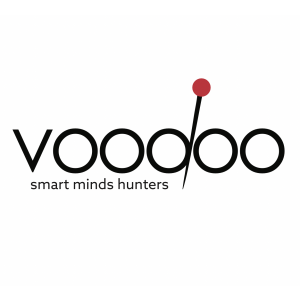JOB MARKET TRENDS IN 2025: What skills will be needed?
5 months ago
Technological advancements, globalization, and the digitization of the job market are constantly reshaping not only professions but also the skills needed to stay competitive. The year 2025 will be no exception—some jobs will become less in demand, while new ones will gain importance. Additionally, factors such as climate change and demographic shifts will influence the skills required in the future. The key challenge will be developing competencies that align with the needs of future employers. In this article, we will explore the dominant job market trends of 2025 and the skills necessary to remain competitive.
1. Technological Literacy and AI Proficiency
Artificial intelligence (AI) is no longer science fiction—it is already a reality in various industries, from healthcare to marketing. However, the key is not just understanding the technology itself but knowing how to utilize it in your work. If you're not an IT specialist, there's no need to panic—learning to use essential tools like ChatGPT, Google Analytics, or Power BI will be enough.
Key skills:
· Data analysis and visualization.
· Basic AI knowledge and its application in business.
How to develop these skills?
· Take online courses on AI and automation (e.g., Coursera, edX, Udacity).
· Experiment with AI tools in your work.
· Read the latest articles on technology trends.
Examples of AI application in different professions:
· Marketing specialists use AI to analyze customer behavior and automate personalized advertising campaigns.
· Lawyers utilize AI tools to analyze legal documents and contracts, saving time and reducing the risk of errors.
· Financial analysts leverage data analysis software to process large datasets and make informed decisions faster.
2. Critical Thinking and Problem-Solving
As more processes become automated, people will be left to handle complex, non-standard situations with no predefined solutions. Decision-making will become more personalized—simply following protocols will no longer suffice. Instead, employees will need to assess specific situations and propose unique solutions. The ability to analyze problems and make data-driven decisions will be one of the most crucial attributes in the job market.
Key skills:
· Logical and analytical thinking.
· Creative problem-solving.
· Data-driven decision-making.
How to develop these skills?
· Engage in real-world problem-solving and participate in design thinking workshops.
· Analyze complex cases, discuss, and justify your decisions.
· Join debate groups or practice logic exercises.
Examples of application:
· Project managers use critical thinking to quickly adapt to unexpected changes in a project and find effective solutions.
· Healthcare professionals rely on analytical thinking to identify the most effective treatment plans.
· Engineers apply problem-solving methods to optimize production processes, reducing costs and improving efficiency.
3. Emotional Intelligence and Communication Skills
While robots can perform many tasks, they cannot empathetically communicate with colleagues or clients. Employers are increasingly looking for individuals who not only perform their tasks well but also work effectively in teams. Strong emotional intelligence helps foster collaboration, resolve conflicts, and maintain positive relationships with clients and colleagues.
Key skills:
· Empathy and active listening.
· Conflict resolution.
· Effective communication.
How to develop these skills?
· Practice active listening and learn to understand others' emotions.
· Attend emotional intelligence development seminars.
· Read books on psychology and communication.
Examples of application:
· Sales professionals with high emotional intelligence persuade clients more effectively and build long-term relationships.
· Managers who recognize and respond to their team's emotions create a more positive work environment and boost productivity.
· Customer service specialists with strong empathy resolve customer issues more efficiently.
4. Continuous Learning and Adaptability
In recent years, the world has changed so rapidly that even a university degree does not always guarantee the necessary competencies for the job market. This is due to technological advancements, globalization, and societal shifts that continually reshape professional requirements. Successful employees will be those who can quickly acquire new knowledge and adapt to changing circumstances.
Key skills:
· Self-directed learning and the ability to apply new knowledge.
· Curiosity and a willingness to continuously improve.
· Adaptability to new technologies.
How to develop these skills?
· Read books and take online courses.
· Attend workshops and seminars.
· Experiment with new technologies and methods in your field.
Examples of application:
· IT specialists continuously learn new programming languages or technologies to stay relevant in the job market.
· Financial analysts monitor market trends and adapt to new financial models.
· Teachers integrate new educational technologies to enhance student engagement and learning outcomes.
5. Sustainability Awareness and Social Responsibility
By 2025, sustainability principles and social responsibility will become key factors shaping employee competencies. Workers will need not only to understand the importance of sustainability but also actively participate in company initiatives that promote sustainable development. A strong understanding of sustainability will help assess an organization's environmental and social impact and contribute to solutions that minimize negative effects.
Key skills:
· Environmental awareness and understanding of sustainability principles.
· The ability to develop and implement sustainable solutions.
· Knowledge of corporate social responsibility.
How to develop these skills?
· Attend training sessions on sustainability and social responsibility.
· Get involved in corporate sustainability initiatives, such as environmental projects.
· Follow the latest trends in sustainability and share knowledge with colleagues.
Examples of application:
· Marketing professionals create strategies that emphasize sustainability and corporate responsibility.
· Project managers ensure that projects comply with sustainability standards and minimize environmental impact.
· HR specialists develop training programs that promote social responsibility and sustainability awareness.
The Future of the Job Market The job market in 2025 will be even more flexible, requiring rapid adaptation. Technological literacy, critical thinking, emotional intelligence, and the ability to learn will be essential across all fields. Additionally, sustainability awareness will become increasingly important—employees will not only need to adapt to technological changes but also consider social and environmental aspects in their work. Those who can combine these skills and actively seek new opportunities will have the greatest advantage in the future job market. Whatever your profession, the key to success is staying curious and open to innovation. After all, the future belongs to those who create it!

